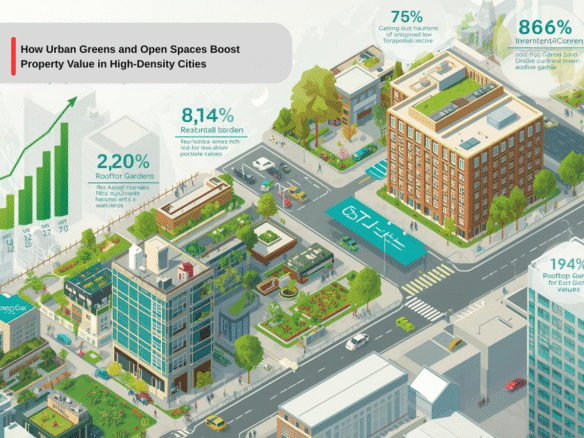The Maldives — a chain of 1,190 stunning islands in the Indian Ocean — is famous for its turquoise lagoons, luxury resorts, and idyllic lifestyle. It’s not surprising that many foreigners dream of owning a piece of paradise here.
But can foreigners actually buy property in the Maldives? What are the rules, restrictions, and opportunities available? This blog answers those questions and gives a clear picture of how property ownership works in this tropical haven.
1. The Legal Framework
The Maldives Constitution and Land Act govern property ownership. Historically, foreign ownership of land was prohibited, but significant changes in 2015 opened new doors.
Under the Foreign Direct Investment (FDI) policy, foreigners can now lease land for long-term development or own land under special conditions — but outright freehold ownership remains limited.
2. Can Foreigners Own Land in the Maldives?
Technically, yes — foreigners can own land, but only under strict conditions.
According to the 2015 amendment to the Land Act:
“Foreigners can own land in the Maldives if they invest more than USD 1 billion, and at least 70% of the land is reclaimed from the sea.”
This means that individual buyers or small investors cannot buy residential property outright. Ownership opportunities are mainly open to large-scale developers and corporate investors.
For everyone else, long-term lease agreements are the practical way to own or use property.
3. Leasehold Properties — The Main Option
Foreign individuals can lease property from the Maldivian government or private owners for a period of up to 99 years.
This lease can include:
- Villas within integrated resort projects
- Apartments or condominiums in tourist zones
- Commercial land for hospitality or real estate development
✅ Example:
A resort development company may offer “ownership” of villas to foreign investors through a leasehold model, where the buyer effectively owns usage rights for 50–99 years.
4. The Real Estate Investment Scene
Over the past decade, the Maldivian real estate market has diversified beyond resorts. Some key segments include:
a) Luxury Resort Villas
The most common investment option. Buyers get partial ownership or long-term lease rights in resort-managed villas. The property is often rented to tourists when not in use, generating rental income.
b) Residential Islands
While most residential islands are reserved for locals, the government has started to promote “Integrated Tourism Islands” that allow mixed residential and hospitality developments for foreign participation.
c) Commercial Real Estate
Office spaces, restaurants, and retail establishments in Malé or nearby atolls attract foreign business owners.
5. Rules and Restrictions for Foreign Buyers
| Aspect | Guideline / Restriction |
|---|---|
| Freehold Ownership | Only for investments above USD 1 billion and reclaimed land |
| Lease Period | Usually 50–99 years |
| Use of Property | Tourism, resort, or commercial purpose |
| Residential Ownership | Restricted; possible only under government-approved projects |
| Foreign Financing | Possible through international banks or development partnerships |
| Taxes & Fees | GST on rental income, land lease rent, and registration charges |
6. Investment Opportunities & ROI
Property investment in Maldives can yield attractive returns, especially through luxury resort projects.
- Rental Yield: 5%–10% annually (from resort-managed villas)
- Capital Appreciation: Steady due to limited supply and growing tourism
- Tourism Growth: Maldives welcomed 2.2 million visitors in 2024, with consistent year-on-year growth
Investing in partnership with reputed developers ensures stable returns and easy management.
7. Risks & Challenges
Despite its appeal, investing in the Maldives has unique challenges:
- Foreign ownership restrictions limit flexibility
- Political or regulatory changes may impact lease terms
- High initial investment requirements
- Limited local financing options
- Natural risks — rising sea levels and climate change
Hence, due diligence and professional advice are essential before making any commitment.
8. How to Buy Property as a Foreigner — Step-by-Step
- Select a Reputable Developer or Resort Project
Look for government-approved developments with foreign participation licenses. - Review Lease Terms
Check lease duration, renewal rights, and usage clauses. - Seek Legal Advice
Hire a Maldivian law firm familiar with FDI and property regulations. - Sign the Agreement
Once approved by the Ministry of Tourism and Economic Development. - Register Your Lease
The contract must be registered with the relevant Maldivian authority. - Make Payments & Obtain Possession
Payments are usually made in USD through secure escrow or bank transfers.
9. Future Outlook: Maldives as an Investment Hub
The Maldivian government aims to attract sustainable and high-end tourism investments. Ongoing infrastructure projects — like the Greater Malé Connectivity Project and new international airports — are set to boost connectivity and property values.
With growing interest from investors in India, the UAE, and Europe, Maldives is evolving from a purely resort destination into a boutique real estate market with long-term promise.
Conclusion
While foreigners can’t easily buy freehold property in the Maldives, leasehold and investment-linked ownership models make it possible to enjoy part of this tropical paradise.






Join The Discussion